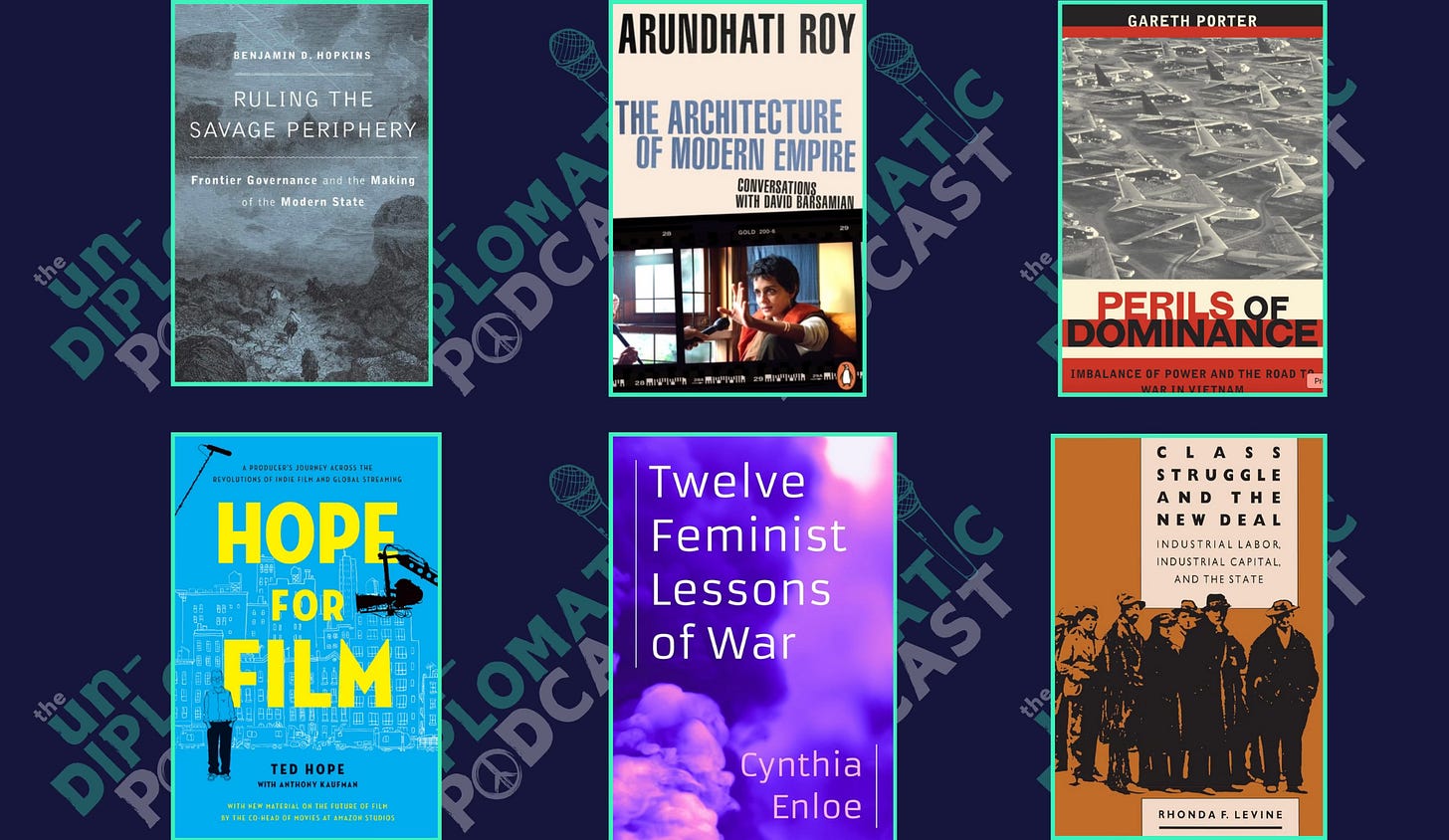2024’s “Most Un-Diplomatic” Reads
List-making time is my favorite time of year. I didn’t read as many books as I’d hoped this year—and only one of these was published in 2024—but here are my faves.✌️
Ruling the Savage Periphery: Frontier Governance and the Making of the Modern State, by Benjamin Hopkins
For an academic book, this was an enjoyable read that shed a lot of light on the relat…


